E-Waste Recycling in 2025: Trends and Regulations Businesses Need to Know
E-Waste Recycling in 2025: Trends and Regulations Businesses Need to Know
E-waste is officially the fastest-growing waste stream in the world, with an estimated 53.6 million metric tons generated globally in 2019 alone. By 2025, that number is predicted to rise significantly as our dependence on electronic devices deepens. For businesses, this presents both a challenge and an opportunity.
This guide explores the key trends in e-waste recycling for 2025, the evolving regulations businesses must comply with, and actionable steps organizations can take to manage their e-waste responsibly.
Whether you're looking to stay ahead of compliance changes, reduce costs, or position your brand as a sustainability leader, this blog has you covered.
Why E-Waste Matters More Than Ever
Electronic waste, or e-waste, refers to discarded electronic devices such as smartphones, laptops, TVs, and other gadgets. The rapid pace of technological innovation often renders these items obsolete faster than consumers or businesses can responsibly dispose of them.
From environmental hazards to valuable materials left unrecovered, the repercussions of poorly managed e-waste are significant.
The Environmental Impact
When e-waste is improperly disposed of, harmful toxins like mercury, lead, and cadmium can leach into the soil and water, posing risks to both human health and ecosystems. For example, incinerated e-waste releases toxic chemicals into the air, contributing to air pollution and climate change.
On the flip side, e-waste contains valuable resources like gold, copper, and rare earth elements. When sent to landfills, these resources are lost forever, perpetuating the need for environmentally destructive mining activities.
Growing Consumer and Regulatory Pressure
Consumers are becoming more eco-conscious, expecting businesses to demonstrate responsibility in every aspect of their operations—including e-waste management.
Additionally, countries and regulatory bodies are introducing stricter laws and enforcement to combat e-waste's environmental impact.
Failure to adapt can lead to hefty fines, reputational damage, and missed opportunities to align with consumer values.
Key E-Waste Recycling Trends in 2025
The future of e-waste recycling is being shaped by critical innovations and practices. Here are the trends every business should keep in mind:
1. The Rise of Circular Economy Models
There’s an increasing shift from a "take-make-dispose" approach to a circular economy model. This involves designing products with longevity, repairability, and recyclability in mind. Businesses are now extending the lifecycle of their devices through refurbishment, encouraging repairs, and even designing modular products that are easier to recycle.
Example: Tech companies like Fairphone are leading the way with modular smartphones that allow easy replacement of individual components such as batteries or screens.
2. Advanced Recycling Technologies
Innovations in recycling technologies are making it easier to extract valuable materials from e-waste efficiently:
- Hydrometallurgy and Pyrometallurgy enable better extraction of precious metals.
- AI Sorting Systems help categorize materials with higher accuracy, improving recycling rates.
- Blockchain for Recycling Transparency creates tamper-proof records so businesses and consumers can track where their e-waste goes.
3. Increasing Collaboration Across Industries
E-waste challenges are too complex for individual stakeholders to solve in isolation. Collaborative efforts between manufacturers, recyclers, governments, and consumers are becoming common:
- Extended Producer Responsibility (EPR) frameworks hold manufacturers accountable for the full lifecycle of their products, including end-of-life disposal.
- Public-Private Partnerships (PPPs) bring together industries and policymakers to develop innovative recycling infrastructure and practices.
4. Growing E-Waste Startups
Startups specializing in e-waste recycling are gaining traction, offering sustainable solutions for businesses without the expertise or resources to manage e-waste internally. Some startups even use eco-friendly alternatives like biotechnologies to break down materials without toxic byproducts.
Tip for Businesses: Partnering with such startups can demonstrate your organization's green commitment while simplifying compliance with recycling regulations.
E-Waste Regulations in 2025
Regulations around e-waste recycling are tightening globally, and businesses will need to adapt. Here's an overview of what’s looming on the horizon:
Europe
The EU is leading the charge with its European Green Deal, which includes a focus on e-waste reduction. The Circular Electronics Initiative ensures electronic devices are durable, repairable, and recyclable.
Beyond this, adherence to WEEE (Waste Electrical and Electronic Equipment) Directives is mandatory for businesses operating within the EU.
United States
While federal regulations around e-waste remain fragmented, individual states like California and New York are imposing rigorous laws. Anticipate broader federal standards for e-waste recycling by 2025 as national attention on sustainability grows.
Asia
China’s Circular Economy Promotion Law and India’s updated E-Waste Management Rules are pushing businesses toward better end-of-life device management. Asia’s role as a global electronics manufacturing hub makes compliance here pivotal for supply chains.
Emerging Markets
Countries across Africa and South America are implementing stricter import policies to prevent illegal dumping of e-waste from developed countries. As these regulations evolve, businesses should closely monitor their waste export practices.
How Businesses Can Stay Ahead
Making e-waste recycling part of your business strategy isn’t just about compliance—it’s about building a sustainable competitive advantage. Here’s how to get started:
1. Audit Your E-Waste
Understand how much electronic waste your organization generates and identify areas to reduce, reuse, or recycle. An e-waste audit can highlight inefficiencies and opportunities for improvement.
2. Adopt a Takeback Program
Implement a takeback program for the products you sell, encouraging customers to return old devices for proper disposal. Incentivize participation with discounts or loyalty rewards—this has the added benefit of boosting customer satisfaction.
3. Partner with Certified Recyclers
Work with e-waste recycling companies that are certified and compliant with global environmental standards. Look for certifications like R2 (Responsible Recycling) or e-Stewards.
4. Educate Employees and Customers
Raise awareness about e-waste within your workforce and customer base. Share tips for responsible device disposal or highlight the environmental benefits of your recycling initiatives.
5. Explore Repair and Refurbishment
Expand your offerings to include repair or refurbishment services. This not only aligns with circular economy principles but also drives customer loyalty.
6. Leverage Technology
Take advantage of AI and data analytics to streamline your e-waste recycling efforts. From tracking waste streams to optimizing recycling processes, technology can be a game-changer.
A Future Where Sustainability Meets Innovation
E-waste isn’t just a challenge; it’s an opportunity to innovate and create a sustainable future for your business and the planet. By adopting new technologies, staying ahead of regulations, and fostering responsible practices, businesses can lead the charge in managing e-waste effectively by 2025 and beyond.
For businesses willing to think beyond compliance, e-waste management can drive better relationships with customers, suppliers, and governments—building a reputation of reliability and ethical responsibility.
Ready to recycle your e-waste?
At Data Shredder Corporation in Massachusetts, we understand how crucial it is to destroy sensitive data securely and recycle e-waste.
We're here to offer you the best hard drive data destruction, shredding, and e-waste recycling services in Massachusetts, ensuring your peace of mind while contributing to the planet's health. We also provide top-notch hardware asset management services.
Your trust is our top priority, and we're dedicated to safeguarding your information with our certified, dependable solutions. Before a security breach even whispers your name, give us a call at(508) 915-7235 or fill out our contact form.


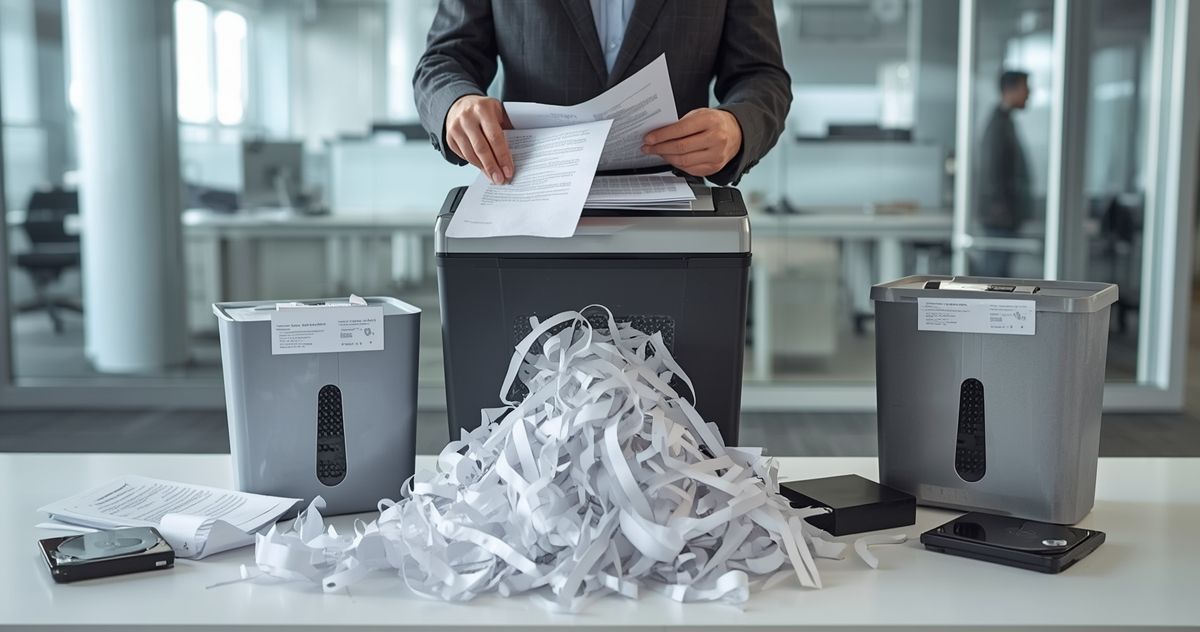

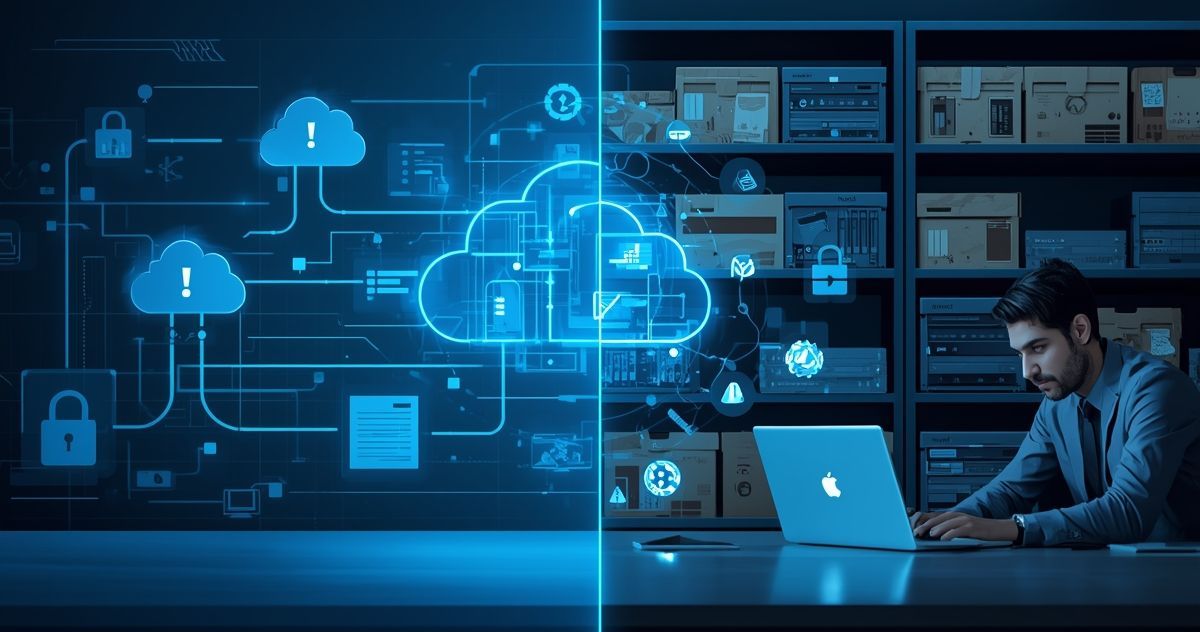
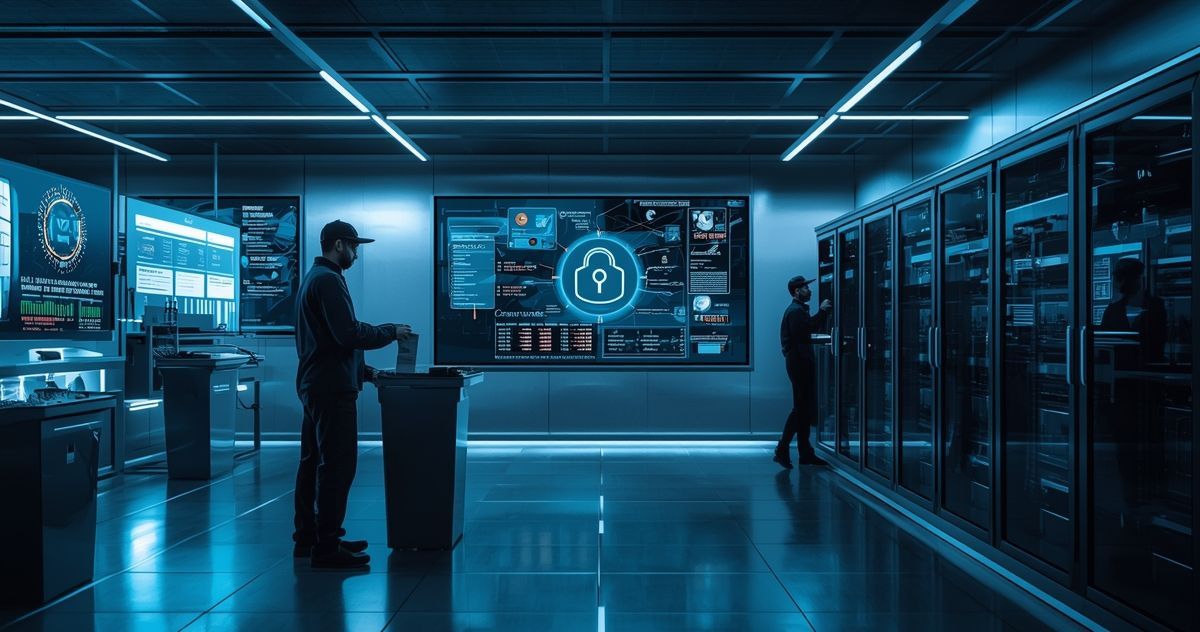
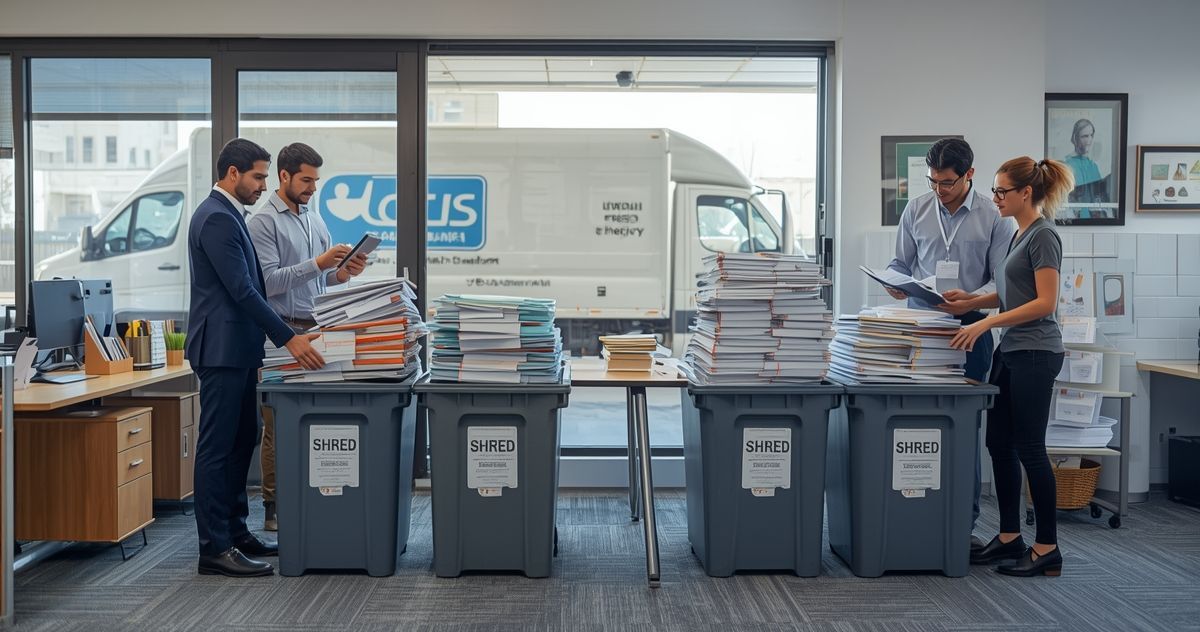
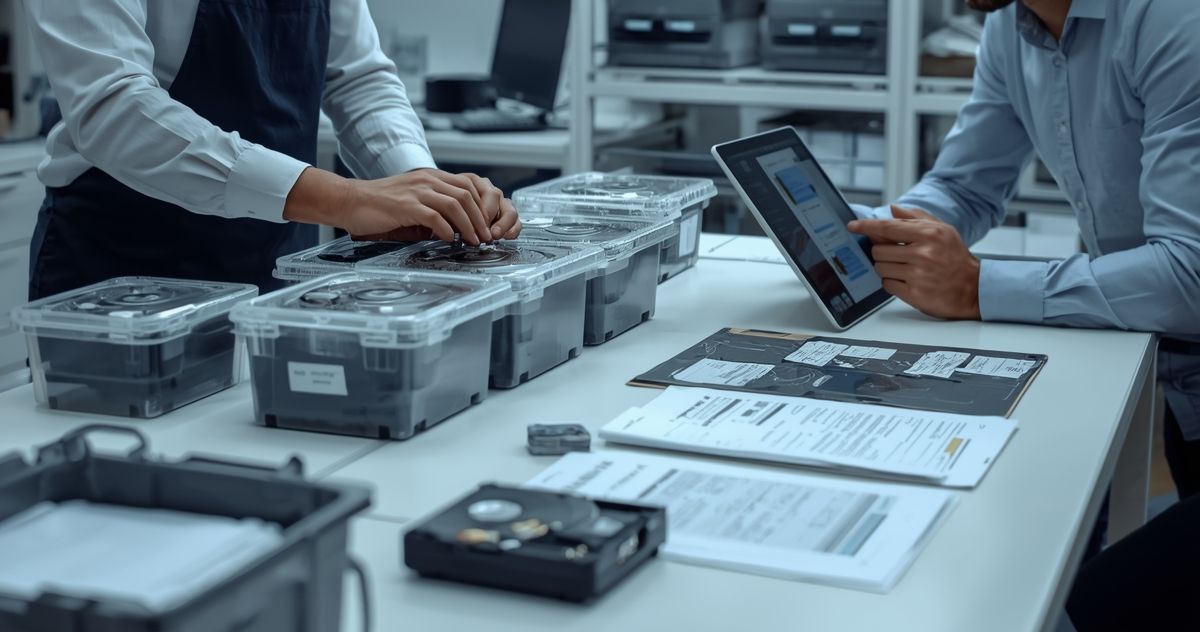


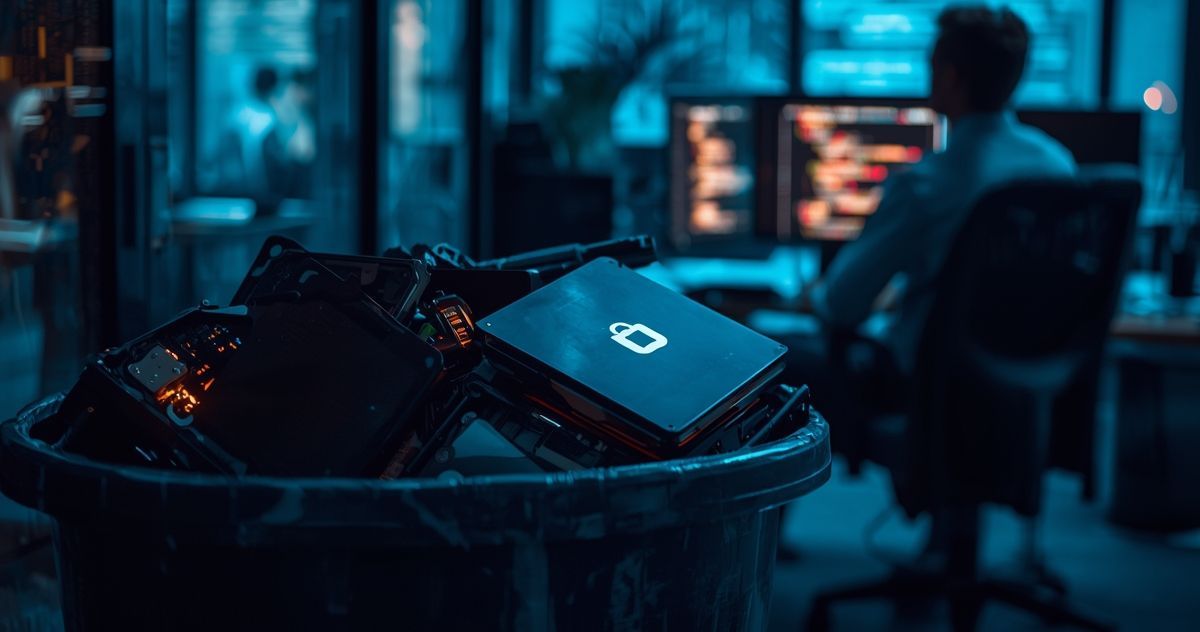
Share On: